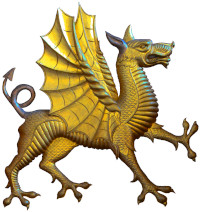I spent eight years in the military, which is basically indentured servitude.
One of the funniest things you hear from civilians is, "I couldn't do the military—I don't like taking orders."
It's funny because they are so far removed mentally from the reality of being a soldier that they might as well be imagining life as an astronaut: "Ah, man, I couldn't deal with all those aliens popping out of people's chests!"
I would have no problem with a term of slavery if the owner played it straight. If it was one of those deals where the guy tries to kill you though overwork and hunger, or to add to your time, I'd take my chances with the law and Indians...
-Baruch
Notes
Baruch's perspective has been echoed by other "servicemen" I have known, who make no bones about the fact that they were "owned" or "the property of" their branch of the armed forces of their nation.
At this point, as we delve into the psychology of a Plantation world, of a matrix in which being the property of a person who had more rights to your body than you did, was the norm in society, we should make two things clear:
1. As Baruch said, "if the owner played it straight" meaning, as was intended, a probable seven year term of servitude [a third of the expected productive life of a man] is not unreasonable in light of the fact that government employees in our time are mentally owned for the same ratio of their productive life. The abuses, gross abuses, that emerged in this system form the outset, were not an aim and could fall under the rubric of unintentional—if predictable—consequences of such a system. Mind you that the English Plantation system was based on family values—the beating of children being a core Anglo-Saxon family value—and that it was inspired, justified and regulated by Scripture and Gospel—the very books which had given hope to the poor for a millennium—and was in no ways intended to be cruel.
2. Going back to our government employee analogy. An employee is one "to be used," to "be employed," with this term coming from the French for tool, and having the same social roots as boy [English male slave], servant, serf, servile, service all coming down through the Latin from human property, Thrall, the Norse term for human property, slave, the Arabic term for Slavic sexual property, flowing to us on the many-branched and crooked trail of human ownership down to our present deluded day. Believe me, that the modern government employee, and by extension the American citizen in general—for the government employee is the house slave to the American Citizen's field slave—the modern American Civil Servant [that word meant slave through all of history, until now] is every bit as owned in his mind, opinion and feelings as the orphan boys of Jamestown and Plymouth Colony were in body.
On their death beds, the Duty Boys bought, owned, worked to death by Puritanical slave master William Bradford refused to convert to his religion even as he offered salvation [and rresumably better medical care] as they lay dying. These illiterate slaves of the sainted founders of our sick nation remained who they were to the grave—emaciated little heroes in the face of Death, turning their backs on the mind games of their cruel earthly master. Yet the modern person, whose body is sacrosanct—worhipped in its ideal forms in the media, tended to by our largest institutions [hospitals] and assigned natural rights in the temples [courts] of this temporal cult—may not utter an opinion considered cross by his mind masters, may not sign his name to a dissenting view of society without the very real and proximate fear of ostracism [the eldest of human penalties] and oral exile, may not disagree with his master without being labeled "monster," "Nazi," "coon" or "white devil."
Have we really left slavery behind?
Is it a coincidence that public and academic discourse on the matter has assigned the terms of master and slave exclusively to the ownership of the body and excluding the concept of ownership of the mind?
The following series of analogies will seek to establish a common link with us and our more grossly brutalized ancestors, beginning with what was goodly intentioned and morally high-minded about the establishment of white slavery in Plantation America, then documenting how this social framework twisted into something monstrous.
In the end though, we should not forget, that the evidence points to roughly as many slave masters "playing it straight," as took the monstrous road. In actuality many more slave masters than not were good intentioned people who "played it straight." The problem was, the ones who palyed it crooked went through many more slaves, and hence became bitterness engines that fueled hate and retribution as most slaves were funneled through their cruel clutches, as the decent owners of human beings had a much higher employee retention level, back when labor retention literally meant keeping your boys and girls alive.
So Her Master May Have Her Again
A History of Runaway White Slaves in Plantation America: Part Two











“Today as always, men fall into two groups: slaves and free men. Whoever does not have two-thirds of his day for himself, is a slave, whatever he may be: a statesman, a businessman, an official, or a scholar.”- Friedrich Nietzche, "Human, All Too Human" (1878)